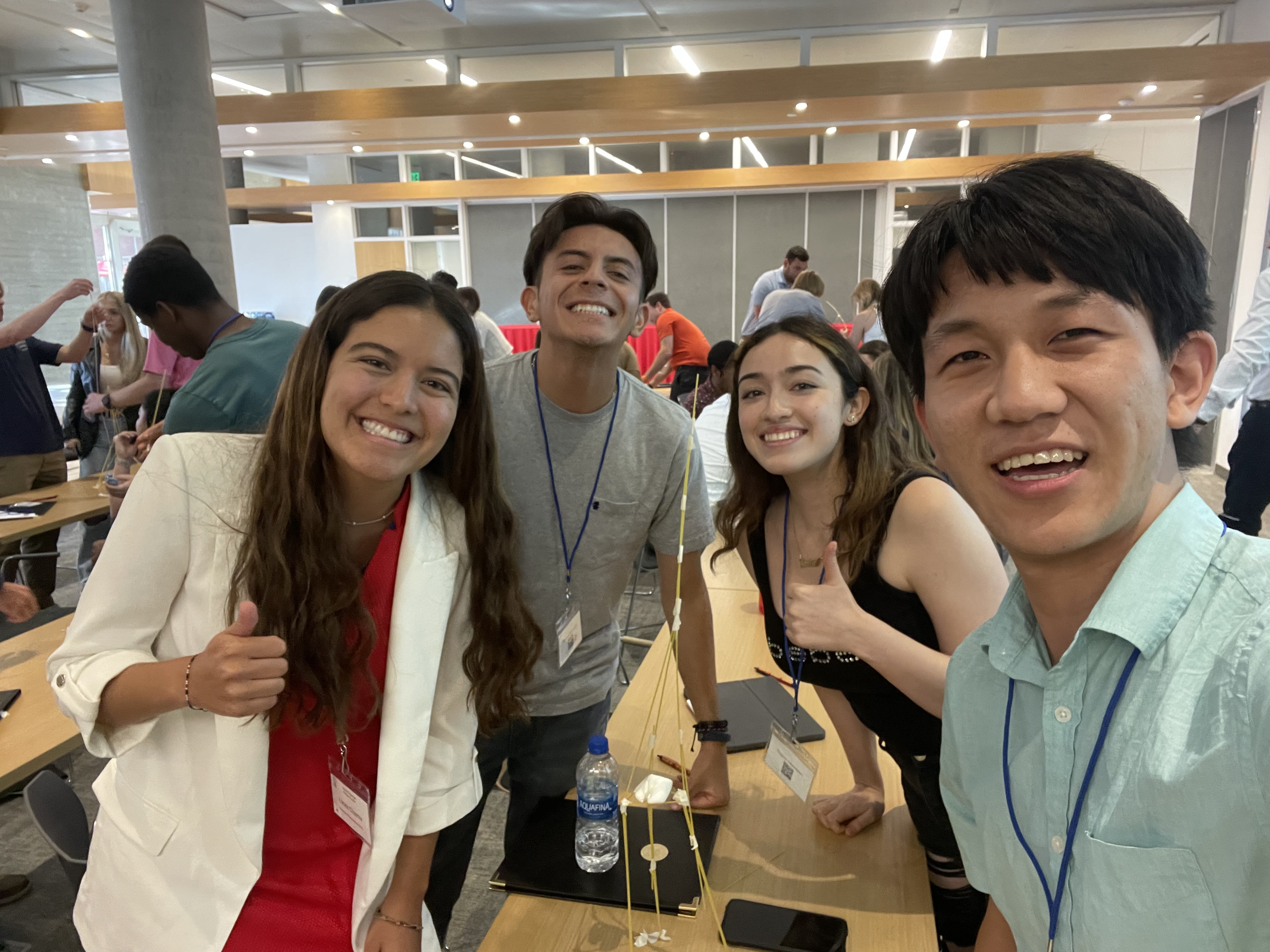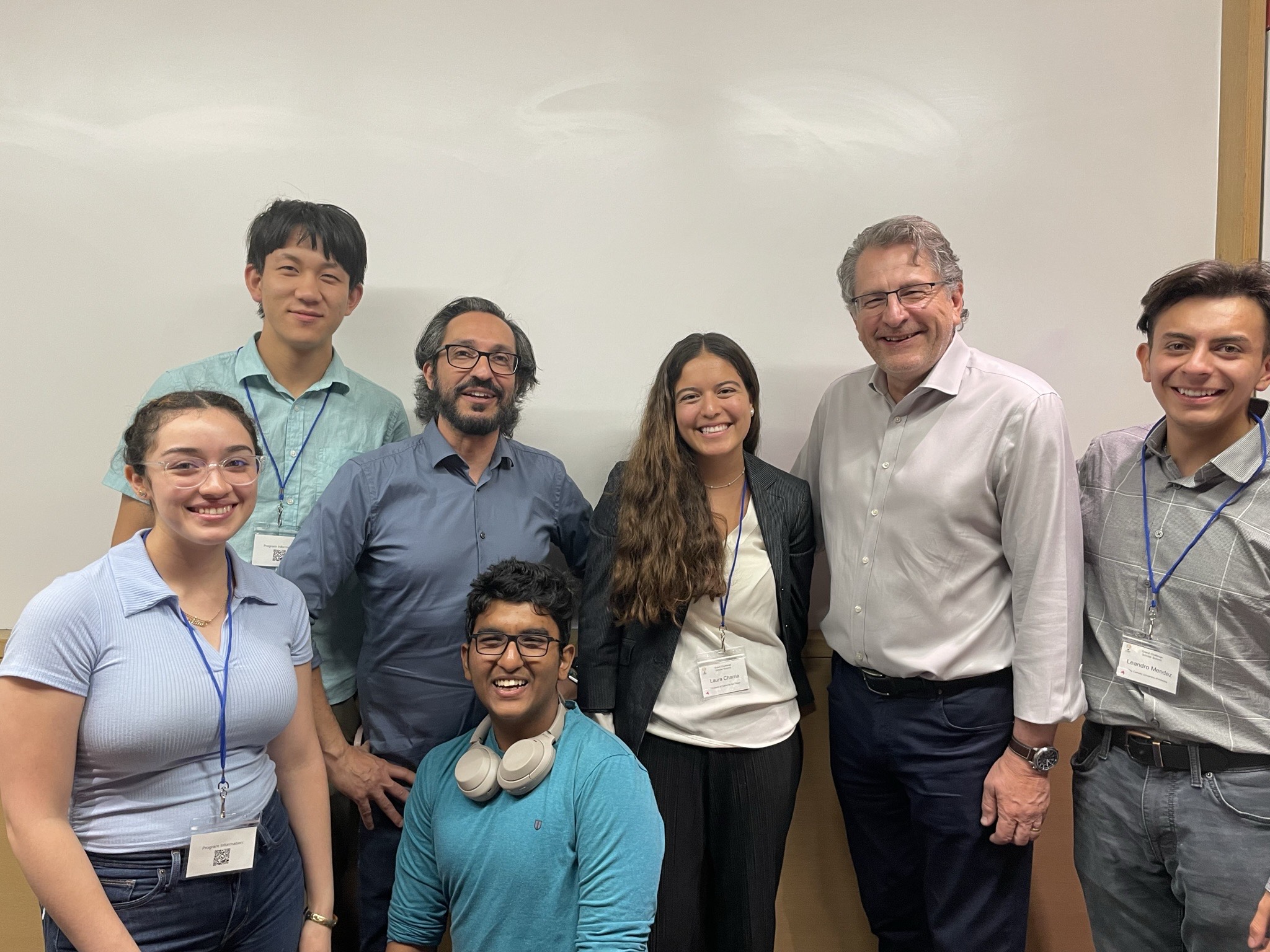This summer, four participants in Catholic University’s Grand Challenge Scholars program – Chizua Agupusi, Isabella Bernard, Margaret Brautigan, and Leandro Mendez Zuleta – traveled to Los Angeles to attend a three-day "Introduction to I-Corps" workshop at the University of Southern California Viterbi School of Engineering. Travel and accomodations were covered by Innovation Node - Los Angeles (IN-LA). Based on their answers to a questionnaire distributed prior to their arrival, the students were teamed up with other Grand Challenge Scholars from around the country to take a hypothetical technology startup from brainstorming sessions to market research on the streets of LA.
Leandro’s teammates (with whom he still shares a group chat) included students from San Diego and Arizona, with a mix of engineering majors, and they were challenged to come up with an idea to improve self-directed learning. Drawing on their experiences as college students who had to contend with social-distancing, as well as Leandro’s experience as a commuter, the team conceived of a 24/7 holographic tutoring AI in a self-driving car – an “Uber Tutor” – perfect for studying with friends on the go! “People definitely had the most questions about our presentation,” Leandro remembers with a proud grin.

After sketching out their idea, the teams received instruction on different customer types and how to interview them before they were tasked with gathering feedback from at least four members of the public. Because their project focused on education, Leandro’s team sought out two faculty members and two student’s on USC’s campus. Their market research seemed to support the team’s suspicion that virtual learning calls for innovative methods of keeping students engaged – one professor talked about how enthusiastically students responded to the horse frolicking in the background of his Zoom lessons from his home on a farm.

Are we going to see “Uber Tutor” (probably under a different name) on the market anytime soon? “Uh, there probably has to be a lot of other technical advances first before that would be possible,” says Leandro. For Leandro, the best outcome of the workshop was advice from the speakers, experienced business leaders themselves: businesses should be built with the problem they are trying to solve as a starting point – the fatal flaw of many start-ups is starting with a solution to a problem that might not exist. This is right in line with the philosophy of the Grand Challenges Scholars program which centers around fourteen major challenges facing engineers in the 21st century. Read more about the program here.
